- Home
- Allison Brennan
Nothing to Hide Page 21
Nothing to Hide Read online
Page 21
“We’re putting together a time line, Mr. Smith. It’s important.”
“Last Christmas, for a week or so. I can get you the exact days if you need them.” He paused, looked from one to the other. “You know, I’ve screwed up in my life, I’ve done many things I’ve regretted, but I’ve never killed anyone. Even when I was drinking, I never killed anyone, though God knows I could have.”
Jerry asked, “Are you an alcoholic?”
“Yes. Sober seven years this December. It’s why I originally went to Phoenix, to check into rehab.”
Those in an addiction program were often very open about their process, Lucy knew from experience in interviews. One of the tenets of most programs was to admit to the addiction without hesitation. Had his alcoholism been a contributing factor to Marissa’s rape? It certainly wouldn’t be the first time alcohol fueled violence—nor was it an excuse.
She pulled out her phone and said, “We’d like you to look at some pictures and tell us if you recognize any of the people.”
“Why?”
“Because we’re in the middle of a murder investigation and if you want to help us find who killed your former friend Julio Garcia and left his two children fatherless, we would like to know if you recognize any of these people,” Lucy snapped. She didn’t want to lose her cool—if she lost it, she wouldn’t be able to get it back.
He nodded.
She flipped through the photos slowly, carefully watching Smith’s reaction. Nothing on Standish or any of the people connected to him. Nothing on Steven James or the people connected to him. When he saw Julio’s picture, his face fell, and when he saw Marissa’s picture the blood drained. He was visibly shaking. “You cannot possibly believe that Marissa had anything to do with what happened to Julio.”
“But you know her.”
“Of course I know her! She used to work here in the hotel. It’s how she and Julio met. We used to double-date and—” He stopped. “Look, I’ve read the news, seen the reports. I know you’re looking for a serial killer.”
Jerry said, “We don’t know what kind of killer we’re looking for, other than he shoots his victims in their face as if they are nothing to him. Not a father, not a husband, not a friend.”
Smith rubbed his eyes. “I wish I could help you. I really do. But Julio and I didn’t talk. Yes, we had a fight, and no, I didn’t report it because it was personal and no one’s business. I told him I was here temporarily, that I was going to Florida.”
“Why would he care about that?”
“It’s personal.”
Lucy bit her tongue. It wasn’t personal; Smith had committed a horrific crime and Julio didn’t want him anywhere near him or his loved ones. She wanted to be angry at Julio for not reporting this guy, but she understood that deep down he was terrified of losing his family. The system didn’t always work. And sometimes it failed those who were the most vulnerable.
“I can’t accept that answer,” Jerry said. “Your friend was murdered, you had a fight with him only weeks ago, and you can’t tell me what it’s about?”
“I’m not going to, and honestly, you can’t make me. It’s personal, it’s between us, and it’s over. I had nothing to do with Julio’s murder, I’m sincerely sorry that he is dead, and if I had any information that would help you find out who killed him, I would give it to you. But I don’t.”
“Where were you Friday night between ten p.m. and midnight?”
At first he looked confused, then he shook his head. “Shit. You’re really doing this.” He turned to his computer again, typed, turned back to them. “I was here, at the hotel, until nine p.m. working. I can give you a list of a dozen people I spoke to or who saw me. I left just after nine for home—my mother’s house, in New Braunfels, where I’m staying until I leave for Florida. I got there shortly after ten. It’s a gated community, there should be a log—they maintain pictures of every vehicle entering and exiting, time-stamped. She was awake, and we talked for a bit, and I went to bed shortly after eleven. I had an early-morning meeting back here at the hotel—I was up by five, at the hotel at six to work out at the gym, showered, then had my business meeting at seven thirty a.m. My grandfather was there.”
“Thank you,” Jerry said, making note of everything he said. “When do you leave for Florida?”
“Next week. Thursday.”
“Leave a way for us to get in touch with you if we have additional questions.”
Smith nodded. He looked oddly dejected and sad. Lucy had no sympathy for him. Regret for a crime—if that’s what this attitude was—didn’t negate the crime. Too bad his guilt didn’t motivate him to confess.
Jerry and Lucy walked out. “A complete waste of time,” Jerry said. “Unless he flat out lied to us about the dates—which we’ll be able to easily track—there’s no way he could have killed all three men.”
“Following the evidence is not a waste of time,” Lucy said. “But I still think we should consult—”
“Drop it, Kincaid. We go back to the facts that we know, reexamine all evidence and witness statements, see if we’re missing anything from any crime scene, and go from there.”
“And if we’re still back here with no viable suspects, no motive, and no road to follow will you at least consider an off-the-record conversation?”
Jerry didn’t say anything, which Lucy took as a win. Because they had nothing, and she feared another victim was right around the corner.
CHAPTER NINETEEN
Thursday Afternoon
Sean was trying not to be an overprotective parent, but realized that it probably wouldn’t happen overnight—if at all. Such was the nature of his world. He and Lucy led dangerous lives, and Jesse was still a kid, barely thirteen.
He had soccer practice Mondays and Wednesdays, and those days Sean let him go to the field with another parent of a kid on the team who was at the same school. He’d done a full background on the family; the kid’s dad was an SAPD cop, and his mom was a nurse. They were good people and Sean had them over for a BBQ at the beginning of the school year just to get to know them. Sean picked Jesse up at the field when practice was over.
The other days, though the junior high was only a mile away, Sean opted to pick him up. There were only two routes to get home without going way out of the way, and if someone was watching his kid, it would be easiest to grab him walking or biking home.
Sean had thought a lot about how to fix the situation, and realized that it would never be “fixed.” Jesse was a Rogan. There were many benefits to being a Rogan, but that also meant there would always be a bull’s-eye on his back. Kane wanted to take him for a couple weekends of “training”—and Sean knew exactly what that meant. Sean wasn’t comfortable with any form of military-style training for his son, not now. But Jesse did need to learn self-defense and situational awareness, and because they had guns around the house, gun safety was an absolute necessity.
Kane would be the best guy to teach Jesse the ropes, but Sean wanted to be there to limit how far Kane went. Lucy was right: With Kane, everything was black-and-white. Maybe Jack would be the better option—Jack had a similar background to Kane, but he wasn’t so rigid in his view of how things worked. He would be more respectful of Sean’s wishes to limit the kind of drills he put Jesse through.
Sean didn’t mind picking Jesse up from school—he actually liked it. He hadn’t been around to teach him to walk, but in a couple of years he’d teach him how to drive. He hadn’t been around to help with his homework, but he’d be around to help him with college applications. He wasn’t in his life on his first day of school, but he’d be there giving him advice on his first date. He’d watch him graduate from high school, see him pursue his own dreams. Sean was trying to look at the positives and not dwell on everything that was denied him for the first thirteen years of Jesse’s life.
He got to the school early and waited in the long line of cars—other parents, mostly moms, who picked up their kids. Sean didn’t mind being a sta
y-at-home dad. He had a job, he was lucky that most of the time he could do it from his computer. He already had a backup for when he traveled—he and Lucy had made a lot of friends in the nearly two years they’d lived in San Antonio. If Lucy couldn’t pick Jess up, they had Nate, Brad, Tia, or Jesse’s soccer friend. Jesse also had his own Uber account. It wasn’t like he always needed a police escort, but Jesse would always be protected.
Kids poured out of the school. Jesse was usually in the middle. He was friendly, and though it was a new school and a new city, he had adjusted better than Sean would have. The soccer team meant instant friends with a common hobby. Plus, Michael had really stepped up to help Jesse feel comfortable with his new situation. They’d been practically inseparable last night. It was good for Jess, but also good for Michael to know that there wasn’t just hate and violence in the world. That there were good people and good kids who did good things.
Jesse didn’t immediately come out of the main entrance. Sean wasn’t concerned at first. Jesse could be talking to a teacher, picking up an assignment, using the john. But he kept a close eye on the double doors, and the surrounding area. He inched his Jeep up as cars in front of him left, giving him room. He was in front of the line when he finally saw Jesse emerge from the building.
His relief was short-lived. Something was wrong. Jesse was walking slowly, like he was in pain. His right arm was stiff across his stomach, and he wasn’t chatting with anyone. Someone waved to him, and he lifted his arm to wave back, then winced.
Dammit, what happened?
Sean jumped out of his Jeep and watched Jesse as he approached. When Jesse caught his eye, Sean saw him try to mask the pain. Sean strode over and took his backpack from him. “What happened?”
“Nothing.”
“Jess, tell me.”
“I did. I’m just bruised.”
“From soccer yesterday? Lift up your shirt.”
“No, stop, I’m fine.”
“You’re not fine. You look like you have a broken rib. I know. I’ve had a broken rib.”
“In the car,” Jesse mumbled.
Fair enough. Sean tossed his backpack into the back and jumped into the driver’s seat. As soon as Jesse sat down, Sean motioned for him to lift his shirt.
The left side of his chest was purple and black.
“We’re going to the hospital.”
“I’ll be fine.”
“You’re not fine. If it’s broken it can be serious. You could have internal bleeding. Why didn’t you tell me you were in so much pain?”
“I thought it would get better.”
There was really nothing to do for a broken or cracked rib except to make sure that there was no internal bleeding or sharp edges that might cause problems down the road. Pain meds, minimal activity, and breathing deeply were important.
He drove to the emergency room. Jesse didn’t object again, which told Sean he was in serious pain.
It didn’t take long before they were called back, which was a small blessing because Sean was going stir-crazy. He wanted to call Lucy, but he also knew she was working this difficult case and he didn’t want her attention divided. If it was serious, he’d call her.
First Sean filled out paperwork. Then the nurse took Jesse’s vitals. Told him to take off his shirt and put on a gown. Then they waited longer and a tech came in to take Jesse for an X-ray. Then they waited again. Finally a doctor came in moments before Sean went to hunt him down.
“Hello, Mr. Rogan, Jesse. Soccer injury? Usually I see broken legs, sprained ankles, the occasional concussion. You a goalie? Get kicked diving for the ball?”
“No, sir,” Jesse said. “We were doing a drill. I was distracted and the ball hit me in the chest.”
“Huh. Get the wind knocked out of you?”
“Yes, sir.”
“Let’s see. I’m just going to lift up the gown, okay?”
“Okay.”
As soon as Sean saw the bruises in the harsh hospital light, he knew they weren’t from a soccer ball. He had been in enough fights to know that the small, circular bruises were caused from a punch. Two punches. Sean looked at Jesse’s hands. They were clean. He hadn’t fought back.
“Tell me when it hurts,” the doctor said as he pressed different parts of Jesse’s stomach and chest. As he neared the bruises Jesse showed signs of pain.
“Well, okay, young man, let me show you what’s going on here.” He pulled up the X-ray on the computer. “You have a hairline fracture on rib seven here, right where it connects to the cartilage. The bruising is caused by the ball, not the cracked rib—you can actually have a cracked rib with no bruising, believe it or not. Fortunately, there is no sign of internal bleeding, and there are no bone spurs or anything to impede recovery. Everything else seems to be just fine.”
He looked at Sean, Sean’s hands, then Jesse. Did the doctor know this wasn’t a soccer accident? Did he think that Sean had hit Jesse? Sean wanted to argue at the unspoken charge, but didn’t. He had to talk to Jesse one-on-one and find out exactly what happened.
But he’d lied to him. Jesse had lied to him about something important and Sean didn’t know how to fix this. Punish him? Ground him? Sean had lied to Duke all the time about where he was and what he was doing, and Duke had grounded him repeatedly and Sean had ignored him. He realized, not for the first time, that he had been a problem kid growing up.
Maybe he owed Duke a bigger apology than the one he’d given him. Coming into parenthood with a ready-made teenager had to be one of the hardest things to do. Sean would be more confident going back to Mexico and fighting the drug cartels.
“There’s nothing to do for the injury, medically speaking. I’ll write a prescription for ibuprofen—stronger than over the counter. We don’t tape most rib injuries because it can inhibit deep breathing, which creates other problems. No sports for the next four to six weeks. Go to your regular doctor for an X-ray in four weeks and she can clear you if you’re healed. You’re a young, healthy kid. I don’t see future complications, but you’ll want to take it easy for a couple of days.”
“Thank you, Doctor,” Sean said.
“I’ll leave the ’scrip and sign the papers while you get dressed.” He left the cubicle, pulling the curtain closed behind him.
“I told you it was nothing,” Jesse said. He slid off the gown and started to pull on his T-shirt, then winced.
Sean helped him with his shirt. “I’ve had broken ribs and cracked ribs and it hurts like hell. Are you sure a ball did this?”
“You don’t believe me?”
No, I don’t.
“Jess, you can tell me anything.”
“I want to go home.”
“Dammit, I need you to be honest with me!” Sean was about to lose it, and he didn’t want to. Not here, not at home, not ever. But he was on edge, and Jesse lying to him was going to send him over. He didn’t know how to deal with this.
“I’m not lying!”
But he wasn’t looking him right in the eye. He almost was, but not quite.
“Why don’t you trust me?”
“Why don’t you trust me?” Jesse countered.
“I’ve been beaten before. I know what a fight looks like. If you’re in trouble, if someone is bullying you—”
“Stop. You’re wrong.”
Sean wasn’t wrong. Maybe about the circumstances of the fight, but he wasn’t wrong that Jesse had been attacked.
He didn’t know how to get Jesse to tell him the truth.
CHAPTER TWENTY
Thursday Night
“I’m sorry I’m so late,” Lucy said when she came in well after nine. “Jerry and I have gone around and around about this case and we’re getting nowhere.”
Sean was sitting at the island in the kitchen nursing his third beer. He tried to listen—Lucy was clearly frustrated with the lack of evidence on her case—but he was only half listening.
“Hey,” she said and put her arms around him from behind. He didn’t rea
lize how much he needed her right now. He’d been so tense since the hospital that his head ached.
He leaned back on the stool, closed his eyes, and let Lucy support him. Just for a minute. Just to clear his head.
She kissed the back of his head and hugged him tightly. “Talk,” she said.
“Jesse. He lied to me. A big one, and I don’t know what to do about it.”
She kissed him again, then walked around to the counter and poured herself a glass of red wine from a half-empty bottle on the counter. She sat next to him and took his hand. He stared at his beer and told her about the cracked rib, about how when he saw the bruises this afternoon he knew that Jesse had been punched. “If someone is bullying him, at school or at soccer, why won’t he tell me? This isn’t just a couple of guys roughing it up—I know, I’ve been in enough fights in my life. He had no defensive wounds. None. He just let someone beat on him, and now he’s out of soccer for at least four weeks. I called Michael because Jesse has been talking to him so much, see if Jesse said something to him, but he said he didn’t know anything about it.”
“And?”
“Michael knows something and he’s not telling me. I called Jesse’s coach tonight and asked about practice on Wednesday. He said Brian left early and Jesse went after him, missed thirty minutes of practice. What are they up to? Were they fighting each other?”
“Brian? I don’t see that,” Lucy said.
“I can’t help but think this has something to do with all the time Jesse has been spending over at Saint Catherine’s. Last night Michael called me for help in math. I’m happy to help, you know that, but I had a feeling that he didn’t need it. It was like the mistakes he made were almost deliberate. I didn’t think about it at the time, but I haven’t stopped thinking about it this afternoon. Michael isn’t talking, and Jesse isn’t talking, and I’m at my wit’s end. I don’t have to know everything, but when someone hits my son hard enough to crack a rib … I’m not going to sit back and let it go.”
“What did Jesse say when you confronted him?”
“I haven’t.”

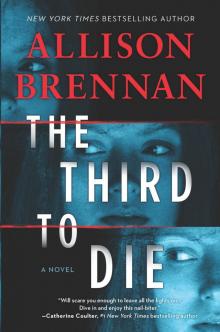 The Third to Die
The Third to Die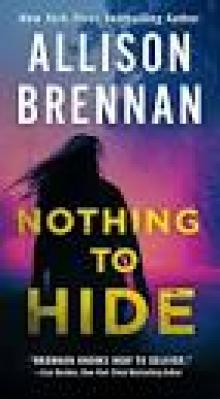 Nothing to Hide
Nothing to Hide No Way Out
No Way Out Cold as Ice
Cold as Ice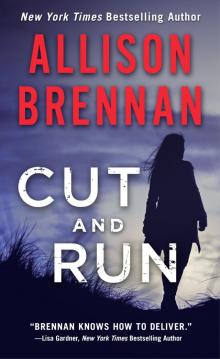 Cut and Run
Cut and Run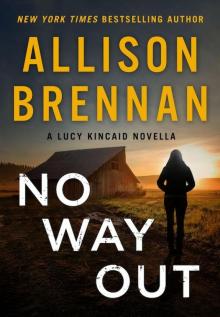 No Way Out (Lucy Kincaid Novels)
No Way Out (Lucy Kincaid Novels) Storm Warning
Storm Warning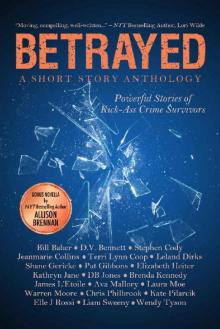 Betrayed: Powerful Stories of Kick-Ass Crime Survivors
Betrayed: Powerful Stories of Kick-Ass Crime Survivors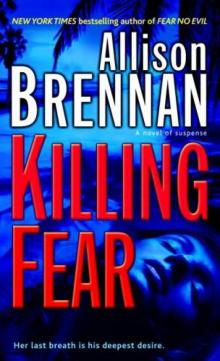 Killing Fear pb-1
Killing Fear pb-1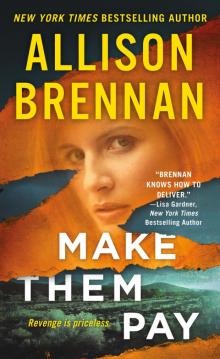 Make Them Pay
Make Them Pay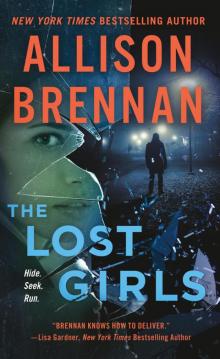 The Lost Girls
The Lost Girls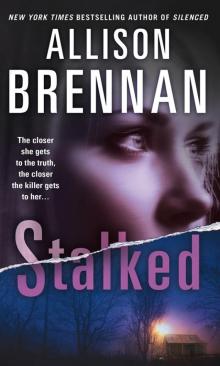 Stalked
Stalked Killing Justice
Killing Justice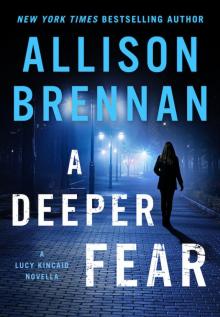 A Deeper Fear
A Deeper Fear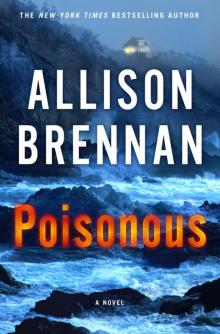 Poisonous
Poisonous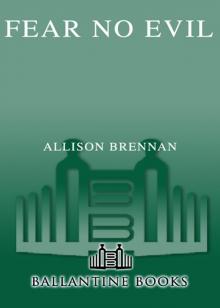 Fear No Evil
Fear No Evil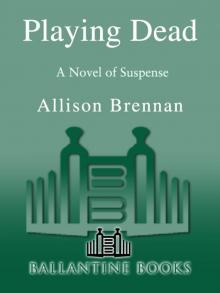 Playing Dead
Playing Dead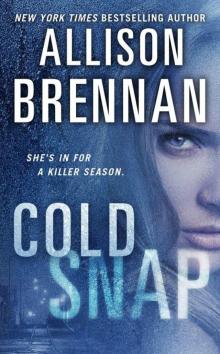 Cold Snap
Cold Snap Vacation Interrupted
Vacation Interrupted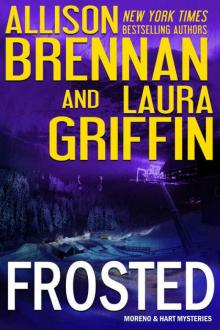 Frosted (Moreno & Hart Mysteries)
Frosted (Moreno & Hart Mysteries)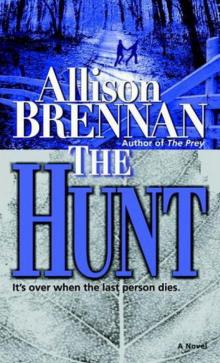 2 - The Hunt
2 - The Hunt Stolen
Stolen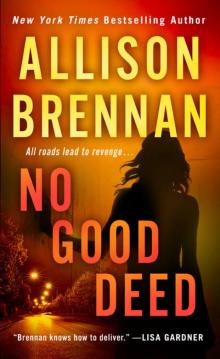 No Good Deed
No Good Deed Cutting Edge
Cutting Edge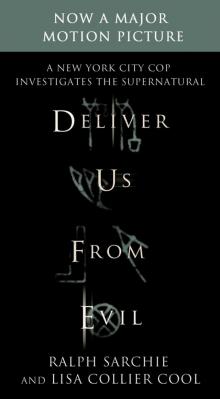 Deliver Us from Evil
Deliver Us from Evil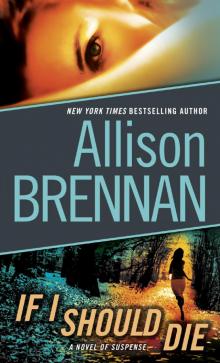 If I Should Die
If I Should Die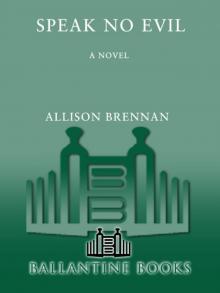 Speak No Evil
Speak No Evil Silenced lk-4
Silenced lk-4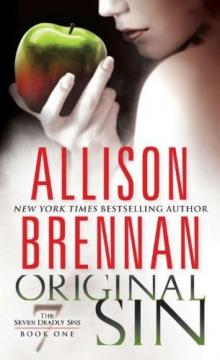 Original Sin sds-1
Original Sin sds-1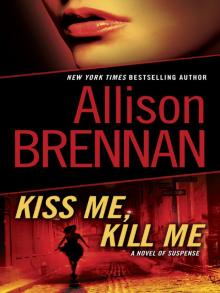 Kiss Me, Kill Me lk-2
Kiss Me, Kill Me lk-2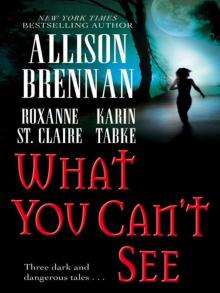 What You Can’t See
What You Can’t See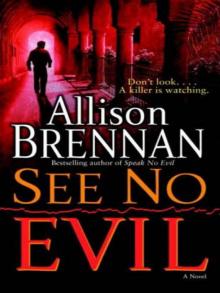 See No Evil
See No Evil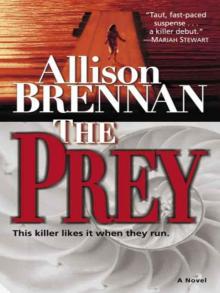 The Prey
The Prey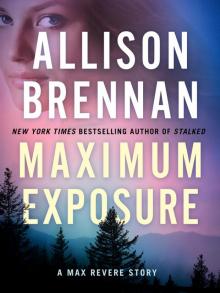 Maximum Exposure
Maximum Exposure Fatal Secrets f-2
Fatal Secrets f-2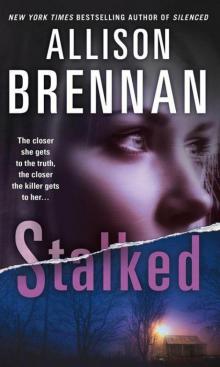 Stalked lk-5
Stalked lk-5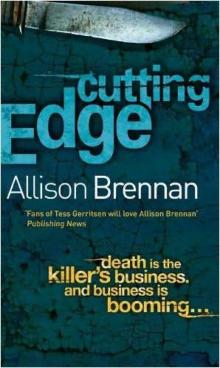 Cutting Edge f-3
Cutting Edge f-3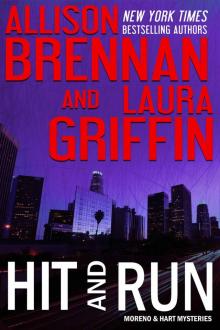 Hit and Run (Moreno & Hart Mysteries)
Hit and Run (Moreno & Hart Mysteries)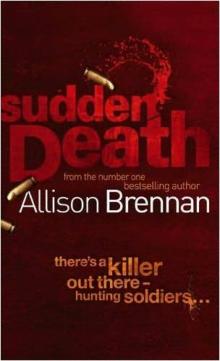 Sudden Death f-1
Sudden Death f-1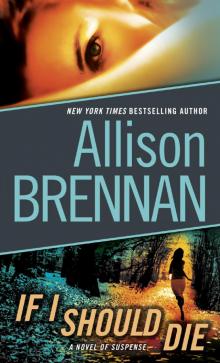 If I Should Die lk-3
If I Should Die lk-3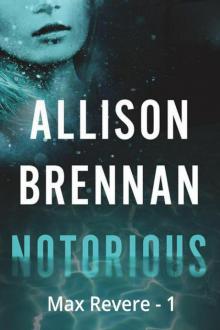 Notorious
Notorious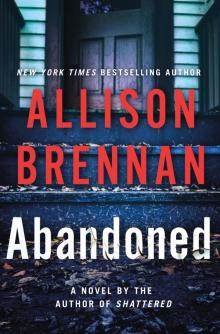 Abandoned
Abandoned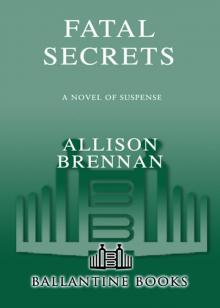 Fatal Secrets
Fatal Secrets The Hunt
The Hunt Carnal Sin sds-2
Carnal Sin sds-2 Love Is Murder
Love Is Murder Lost and Found
Lost and Found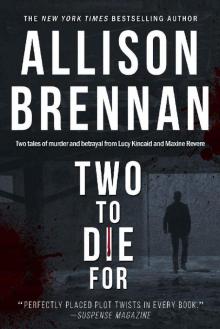 TWO TO DIE FOR
TWO TO DIE FOR Breaking Point
Breaking Point Best Laid Plans
Best Laid Plans Carnal Sin
Carnal Sin Silenced
Silenced Dead Heat
Dead Heat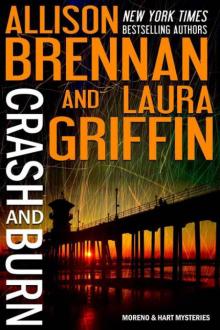 Crash and Burn
Crash and Burn Sudden Death
Sudden Death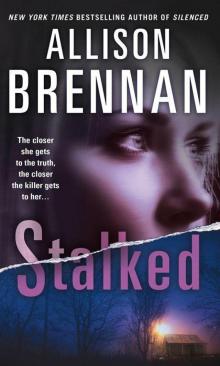 Lucy - 05 - Stalked
Lucy - 05 - Stalked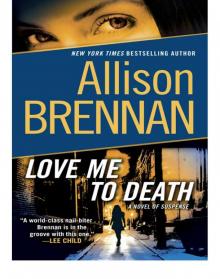 Mortal Sin
Mortal Sin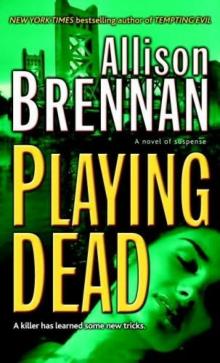 Playing Dead pb-3
Playing Dead pb-3 Kiss Me, Kill Me
Kiss Me, Kill Me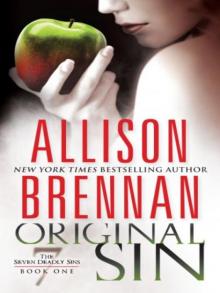 Original Sin: The Seven Deadly Sins
Original Sin: The Seven Deadly Sins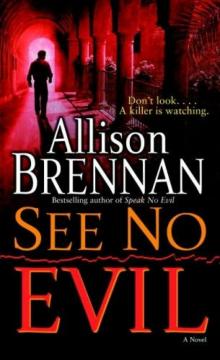 See No Evil e-2
See No Evil e-2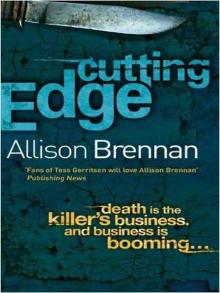 Cutting Edge: A Novel of Suspense
Cutting Edge: A Novel of Suspense Original Sin
Original Sin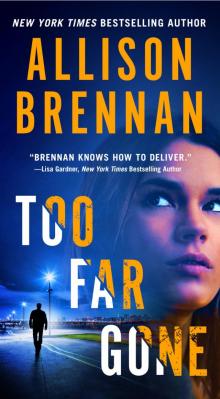 Too Far Gone
Too Far Gone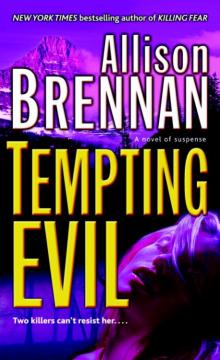 Tempting Evil
Tempting Evil Shattered
Shattered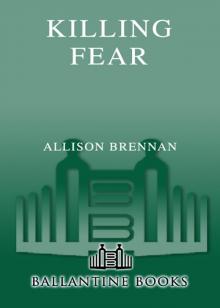 Killing Fear
Killing Fear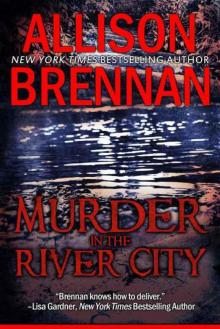 Murder in the River City
Murder in the River City Love Is Murder (lucy kincaid)
Love Is Murder (lucy kincaid)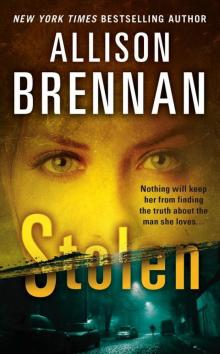 Stolen (Lucy Kincaid Novels)
Stolen (Lucy Kincaid Novels)